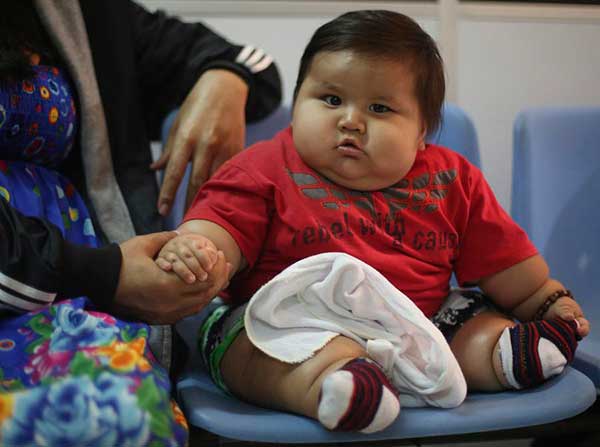The hard questions soft drinks raise
Updated: 2016-07-26 07:47
By Adam Briggs, Mike Rayner & Peter Scarborough(China Daily)
|
||||||||
 |
|
Women who drink artificially sweetened beverages during pregnancy are more likely to have overweight infants, a study said on May 9.[Photo/Agencies] |
In March, the British government announced that it intends to impose a tax on sugary drinks from 2018 to tackle childhood obesity. Whether the tax, which will be debated this summer, achieves its public-health goals depends on the details, and on rigorous evaluation of its effects.
The United Kingdom is not alone in worrying about the global rise in obesity-related ailments like diabetes and cardiovascular diseases-costly conditions that can lead to significant disability and early death. Many countries have, or are considering, imposing taxes on unhealthy foods and drinks-especially those to which sugar has been added. For example, Chile has an 18 percent tax on high-sugar drinks, France taxes drinks with both added sugar and artificial sweeteners, and Hungary taxes food and drinks with high sugar, salt and caffeine content. And Philadelphia in Pennsylvania recently became the largest US city to impose a tax on sweetened drinks.
These food taxes are one of the most effective behavioral-change levers available to policymakers: price. But it would be premature to conclude that higher prices necessarily lead to lower consumption and thus better health outcomes. The effectiveness of a tax depends on how it is designed, and how consumers and the food industry respond to the incentives it creates.
The imposition of taxes on sugary drinks in Mexico and Berkeley in California, has demonstrated the industry's willingness to fight legislation that might lower its profits. And evidence suggests that these taxes, once implemented, did indeed result in a change in price for customers, who subsequently bought fewer sugary drinks.
Unfortunately, however, little is known about the effect of these taxes on public health. Obesity and its related ailments take a long time to develop, and isolating the effects of food taxes from changes caused by other health policies and cultural trends is challenging. However, both mathematical modeling and simple logic suggest that these taxes will improve health. And detailed evaluations have been launched in Mexico and elsewhere to quantify the effect.
Interestingly, all taxes on sugary drink, whether in France, Hungary, Mexico or Chile, are sales taxes; they lead directly to increases in point-of-sale prices, often in proportion to the volume of the drink. In Mexico, for example, the tax is a peso per liter, which raises the price by about 10 percent.
This is where the proposed UK scheme differs. Former chancellor of the UK Exchequer George Osborne announced a two-tiered levy, with the explicit aim of encouraging the industry, rather than consumers, to change behavior.
The proposed tax has been widely welcomed by public health organizations and campaigners. But since placing the burden on industry is a different approach than has been implemented elsewhere, the effects are not entirely predictable. For example, there is nothing to stop a company from raising prices across its product range, thereby erasing any price difference between high-sugar drinks and low-sugar alternatives.
The possibility of the reformulation of existing offerings and new entrants into the market are other important uncertainties. In 2014, Coca-Cola introduced its low-sugar alternative, Coca-Cola Life. With its distinctive green packaging and wholesome image established through advertising campaigns, the new product captured more than 2 percent of total Coca-Cola sales in the first year after its introduction. However, it is unclear whether these additional sales came from consumers who would otherwise be drinking full-sugar Coca-Cola, the diet version of the soft drink, or other beverages, such as fruit juice or water.
If industry responds to the tax by reformulating products and changing its marketing strategy, and if this leads to a reduction in sugar intake in the UK, then the tax will have been a success. But accomplishing this will require policymakers to get the legislation right and to ensure that its effects are properly assessed.
Adam Briggs is a Wellcome Trust Research Training fellow at the British Heart Foundation Centre on Population Approaches for Non-Communicable Disease Prevention, Mike Rayner is a professor of Population Health at the Nuffield Department of Population Health and director of the British Heart Foundation Centre on Population Approaches for Non-Communicable Disease Prevention, and Peter Scarborough is a senior researcher at the British Heart Foundation Centre on Population Approaches for Non-Communicable Disease Prevention.
Project Syndicate
- Mexican soft drinks tax 墨西哥将对含糖饮料征重税
- Australia should tax high-sugar soft drinks: U.S. obesity expert
- Soft-drinks king plans to open department stores
- Soft drinks sales may fizz up as economy improves
- Lack of sugar halts Coke production
- Coke expands sugar cane irrigation
- Coke export grows in 2014
- Coke adds more fizz in China with smog incentives
- The world in photos: July 18-25
- Cambodia hailed for upholding justice on maritime issue
- ASEAN countries urged to 'dispel disruptions'
- One dead, 12 injured in blast near Nuremberg, Germany
- Fashion of Queen Elizabeth on exhibition in London
- Hollande urges Britain to begin EU exit talks 'as soon as possible'

 Sunny images of 60-year-old go viral in China
Sunny images of 60-year-old go viral in China
 Xi'an battered by summer downpours
Xi'an battered by summer downpours
 Photographer uses traditional technique to capture images
Photographer uses traditional technique to capture images
 Now and then: Rebirth of Tangshan 40 years after quake
Now and then: Rebirth of Tangshan 40 years after quake
 Things you may not know about Major Heat
Things you may not know about Major Heat
 Unveiling the secrets of Elizabeth II’s wardrobe
Unveiling the secrets of Elizabeth II’s wardrobe
 Go global: Wanda's top 10 foreign acquisitions
Go global: Wanda's top 10 foreign acquisitions
 Hot pepper and ice tub challenge held in E China
Hot pepper and ice tub challenge held in E China
Most Viewed
Editor's Picks

|

|

|

|

|

|
Today's Top News
Ministry slams US-Korean THAAD deployment
Two police officers shot at protest in Dallas
Abe's blame game reveals his policies failing to get results
Ending wildlife trafficking must be policy priority in Asia
Effects of supply-side reform take time to be seen
Chinese State Councilor Yang Jiechi to meet Kerry
Chinese stocks surge on back of MSCI rumors
Liang avoids jail in shooting death
US Weekly

|

|








